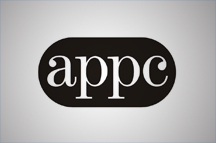 The Association of Professional Political Consultants (APPC) has called for clarification “on what defines ‘direct communications’ at the earliest opportunity”. Iain Anderson, Chairman of the APPC, made the request in the APPC’s response to the Cabinet Office’s consultation on the draft regulations, required to be made in advance of the establishment of the Register of Consultant Lobbyists.
The Association of Professional Political Consultants (APPC) has called for clarification “on what defines ‘direct communications’ at the earliest opportunity”. Iain Anderson, Chairman of the APPC, made the request in the APPC’s response to the Cabinet Office’s consultation on the draft regulations, required to be made in advance of the establishment of the Register of Consultant Lobbyists.
Anderson went further, stressing the importance of clear guidance from the Registrar. He said: “There are a number of issues on which the Registrar needs to issue clear guidance to third-party lobbyists, in particular offering a strong lead on what defines ‘direct communications’ at the earliest opportunity to ensure that APPC members are able to fully prepare for the launch of the lobbying register.”
 He continued: "Our members are also very anxious to ensure that the funding and registration structure does not cause an undue financial or bureaucratic burden. However, our own estimates show that far fewer third-party lobbyists are likely to register than the Government estimates, with the risk that a smaller number of registrants could be saddled with a high cost of registration. We are seeking reassurances that the cost structure will be fair and flexible."
He continued: "Our members are also very anxious to ensure that the funding and registration structure does not cause an undue financial or bureaucratic burden. However, our own estimates show that far fewer third-party lobbyists are likely to register than the Government estimates, with the risk that a smaller number of registrants could be saddled with a high cost of registration. We are seeking reassurances that the cost structure will be fair and flexible."
Other key concerns highlighted in the APPC’s response include:
- On the lack of clarity defining 'direct communication': "Until there is a clear definition of the 'direct communication' that will trigger registration, it will be difficult, if not impossible, for most of our members to determine whether they need to register...the legislation is so narrowly framed that it could be simple for any organisation to avoid the need to register."
- On the legislation: "We continue to believe that the primary legislation is flawed and could in fact serve to reduce transparency, particularly by failing to include all those who engage in lobbying on a professional basis."
- On costs for third-party lobbyists: “Unless charges are proportionate, the cost of the register has the potential to encourage less transparency in lobbying than at present, for example, by organisations arranging their operations to avoid the need to register.”
The APPC’s response can be seen in full on the APPC website.














